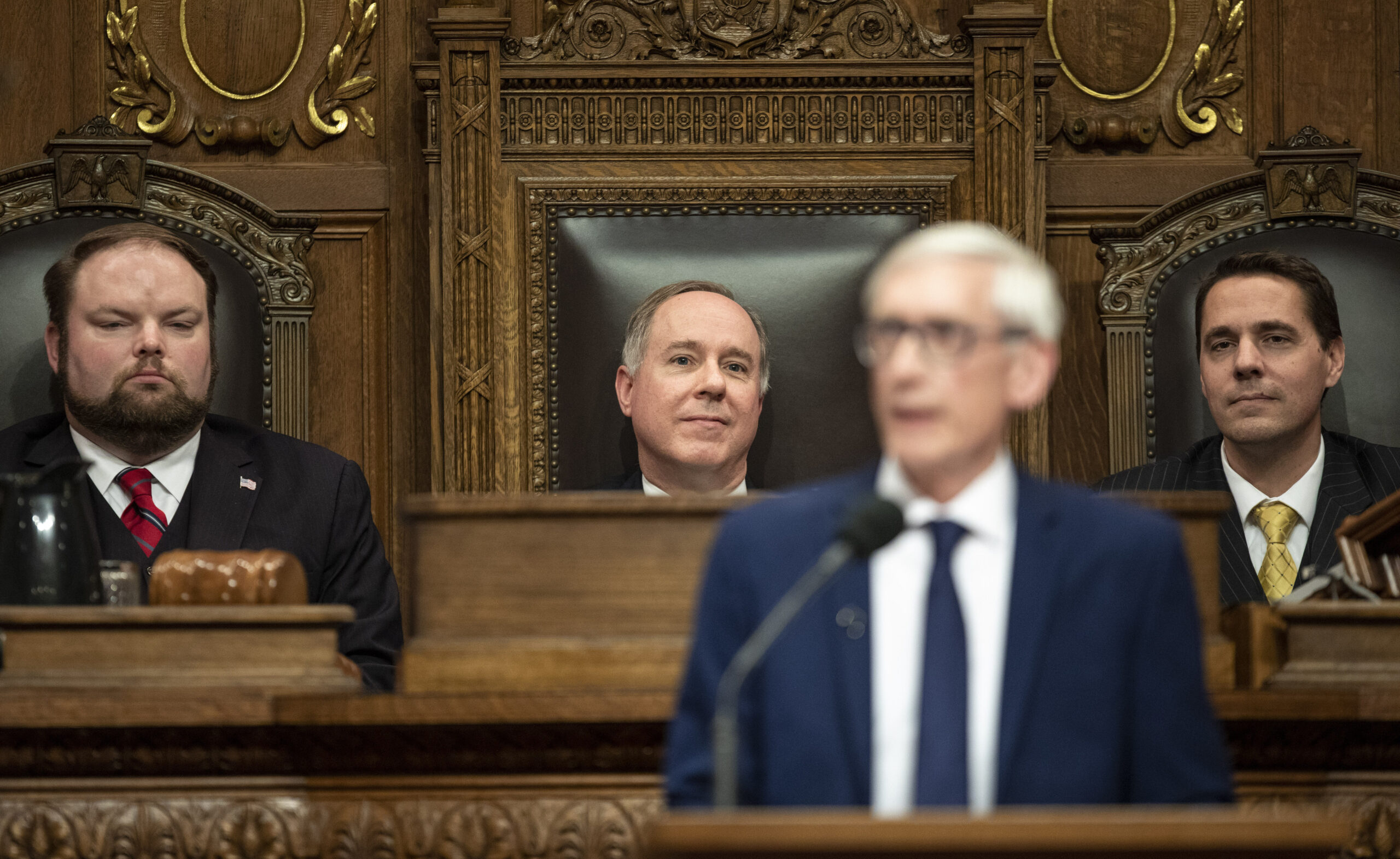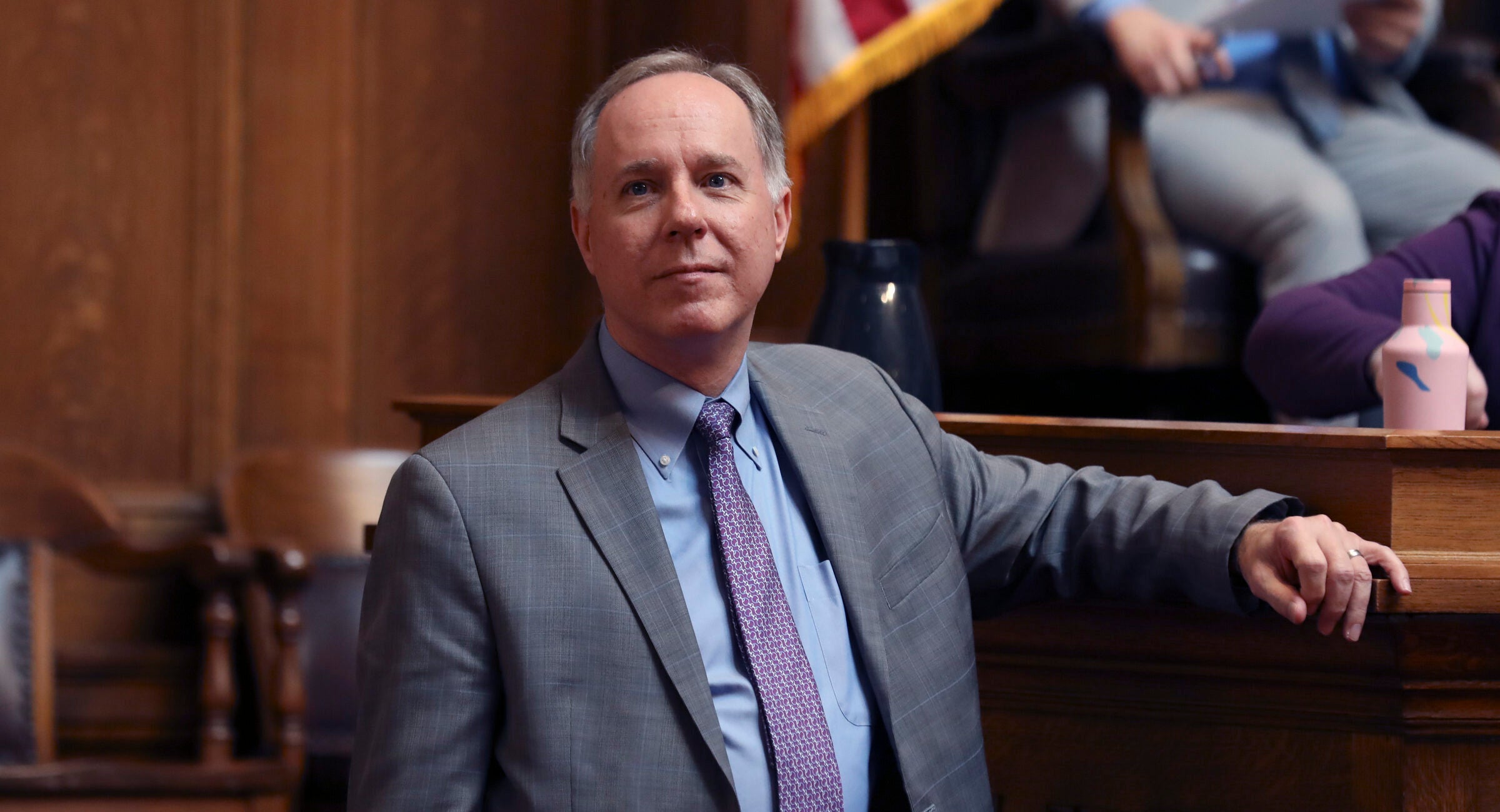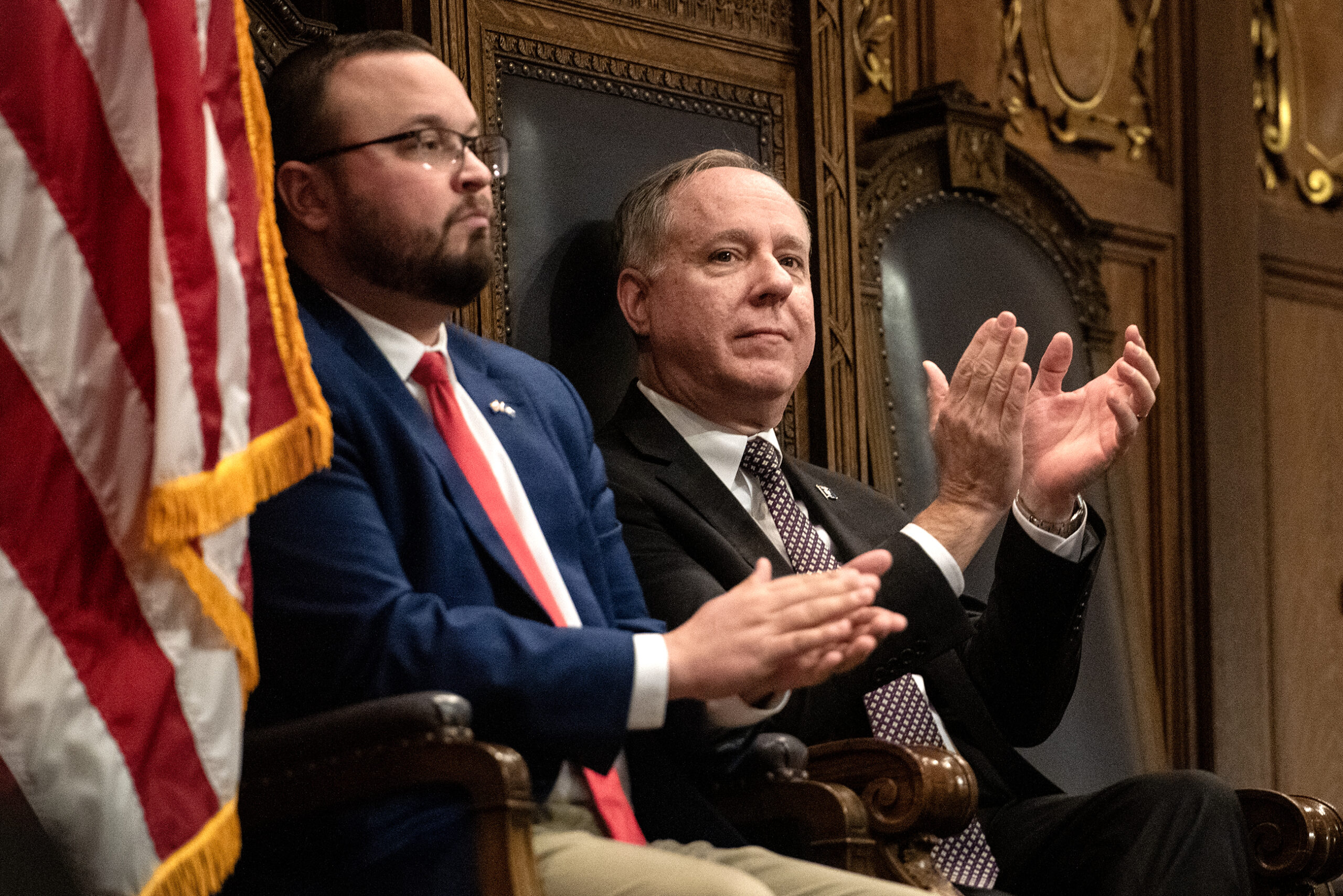With negotiations getting underway for how the state will spend a historic $7 billion budget surplus, one of the Legislature’s top Republicans had a message Wednesday for groups with a stake in the fight: There’s not as much money as you think.
This is the third time Assembly Speaker Robin Vos, R-Rochester, has led Republicans through a budget introduced by Democratic Gov. Tony Evers, but the first time any Wisconsin lawmaker has dealt with a projected surplus this large.
The $7 billion figure comes from an estimate provided by the Legislative Fiscal Bureau, a nonpartisan agency praised by lawmakers from both parties. It is, simply put, an estimate of how much the state government will have in its general fund — which is like its checking account — when the current budget ends June 30.
News with a little more humanity
WPR’s “Wisconsin Today” newsletter keeps you connected to the state you love without feeling overwhelmed. No paywall. No agenda. No corporate filter.
Evers has described the surplus as a once-in-a-lifetime opportunity, calling on lawmakers to fund a long list of priorities from broadband expansion to paid family leave. During upbeat remarks to the Wisconsin Counties Association Tuesday, the governor promised local governments they’d see the half-billion dollar increase in state shared revenue they were hoping for.
Vos struck a different tone in his own speech to the Counties Association Wednesday, accusing Evers of living in a “fantasyland” when it comes to the budget.
“We do not have anywhere near the money that Gov. Evers spoke about,” Vos said. “People believe we have this gargantuan amount of money that we can spend on all kinds of different things. One-time money, yes. Ongoing money, much more difficult.”
The distinction between “one-time” and “ongoing” money is less significant in the current budget debate than it is when looking at future budgets. “One-time” money — like a windfall of federal coronavirus funding — can’t be counted on years from now. “Ongoing” money — like revenue from fees or sales and income taxes — is considered more reliable.
“His broad point that a lot of the surplus is one-time money that would not be available in future budgets — I mean that is true,” said Jason Stein, research director at the Wisconsin Policy Forum. “That being said, there is still a significant amount of ongoing money. But it depends on how it gets counted.”
The way Vos described it in remarks Wednesday is that the state is expected to generate about $1.2 billion in new taxes in the next two-year budget cycle, meaning revenue growth from existing sources like income, sales and corporate taxes.
Vos said about $500 million of that would be needed to fill a hole in the Medicaid budget that was paid for in the last budget by federal funds from the American Recovery Plan Act. He said another $400 million would be needed to fund raises for corrections officers at Wisconsin’s prisons.
“So we have got a really challenging environment to deal with, where people believe that there is more money than we can spend,” Vos said.
There are choices built into that assumption. For example, Evers’ budget would take a federal expansion of Medicaid through the Affordable Care Act, saving an estimated $1.6 billion in state tax funding, according to the governor’s office. Republicans have repeatedly rejected that move.
“It does make a difference whether or not you take the federal expansion money,” Stein said.
Other Republicans have also raised questions this week about whether the state can afford Evers’ budget. Rep. Mark Born, R-Beaver Dam, one of the co-chairs of the Legislature’s budget committee, called the governor’s plan “unrealistic.”
Speaking to reporters in Milwaukee Wednesday, Evers stood by his budget.
“I don’t know what (Born) means by that, to be honest,” Evers said. “We have a $7 billion surplus. We have lots of needs in the state.”
The other co-chair of the budget committee, Sen. Howard Marklein, R-Spring Green, also downplayed the size of the budget surplus this week in a Madison forum hosted by Wispolitics. But Marklein pegged it at a different number, saying the “ongoing” surplus was “in the area of $3 billion.”
Wisconsin Public Radio, © Copyright 2025, Board of Regents of the University of Wisconsin System and Wisconsin Educational Communications Board.






